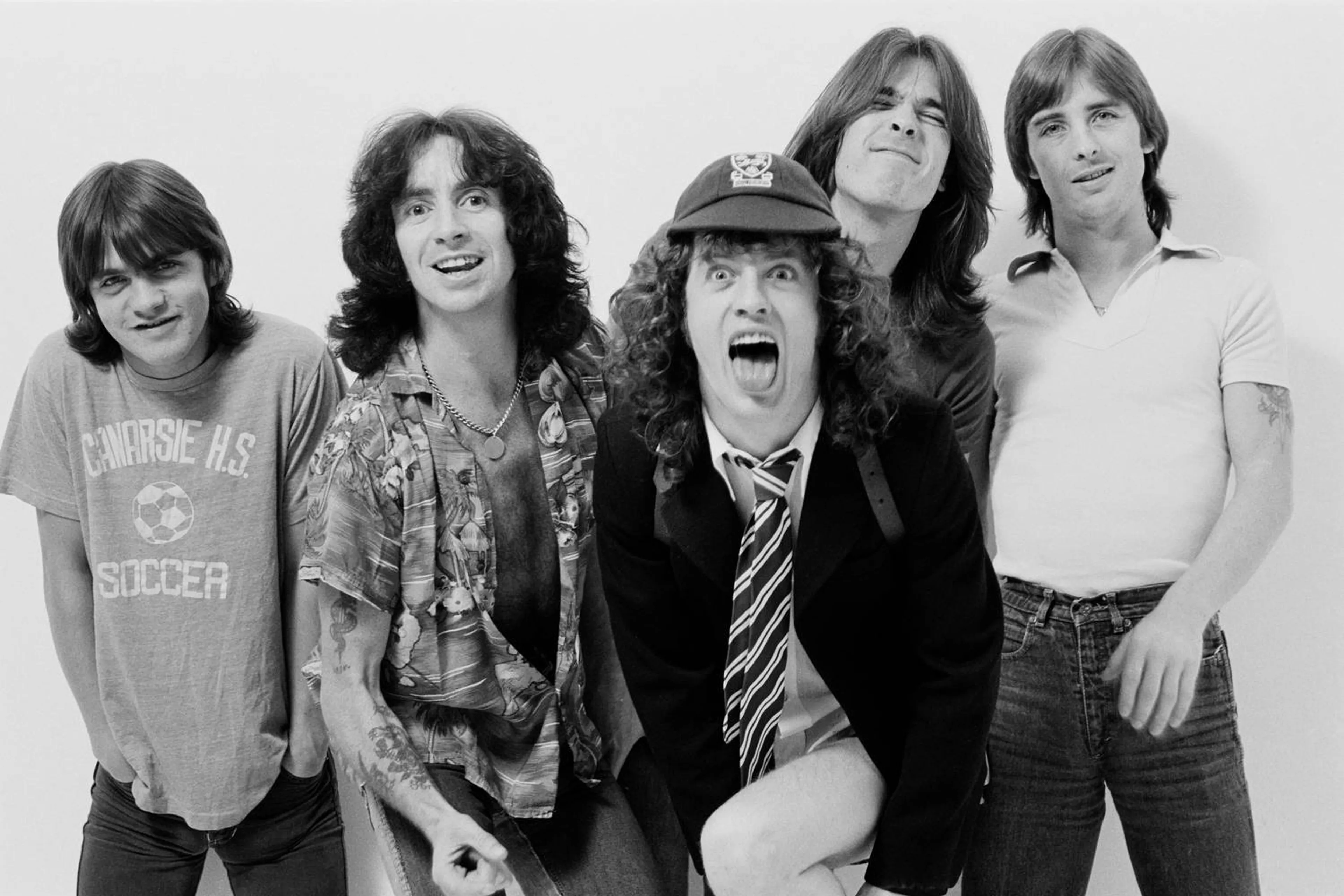AC/DC’s (frankly joyless) critics have accused the Scot-Australian titans of writing the same song over and over again across their near five-decades of existence. Perhaps they’ve got a point, but when the mould is that damned good, why break it?
Formed in Sydney in 1973 by Glasgow-born brothers/guitarists Malcolm and Angus Young, and galvanised by the arrival of fellow Scottish immigrant Bon Scott on vocals in 1974, they took their name from the power-input instruction on their sister’s sewing machine and proceeded to charge their own prototypical hard rock sound with the same feeling of electric power and immediacy. Breaking out in Australia with their first two locally-released albums, they would subsequently crack Europe while based in the UK before going on to conquer the wider world.
Tragedy would strike with Bon’s death in February 1980 from reported alcohol poisoning but, with the blessing of his family, the band made the brave decision to try to carry on. Somewhat fittingly, lightning struck twice, with Geordie frontman Brian Johnson helping them pick up right where they’d left off with the all-conquering Back In Black, which would go on to be the second-best-selling record of all time.
Over the years since, they’ve remained larger-than-life atop the rock tree: starring on the cover of the first-ever Kerrang! magazine 40 years ago in June; routinely crushing stadia; dropping a further 10 albums (including most recent LP POWER UP) that have rarely failed to live up to fans’ expectations; hell, even turning up to Download Festival in 2010 with a stage of their own, which was substantially bigger than any of those already available.
So ubiquitous are they at this point, that even the most casual of rock fan worthy of their black T-shirt already has a nailed-on playlist of top Acca-Dacca tracks. This is ours – which is absolutely, indisputably correct. Obvz.
